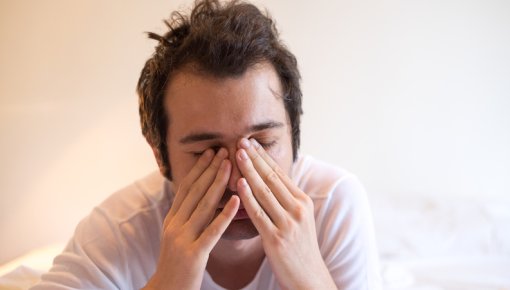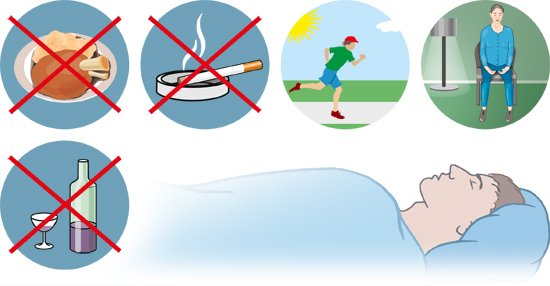Banno M, Harada Y, Taniguchi M et al. Exercise can improve sleep quality: a systematic review and meta-analysis. PeerJ 2018; 6: e5172.
Brasure M, MacDonald R, Fuchs E et al. Management of Insomnia Disorder (AHRQ Comparative Effectiveness Reviews; Volume 159). 2015.
Cao HJ, Yu ML, Wang LQ et al. Acupuncture for Primary Insomnia: An Updated Systematic Review of Randomized Controlled Trials. J Altern Complement Med 2019; 25(5): 451-474.
Chen MC, Yang LY, Chen KM et al. Systematic Review and Meta-Analysis on Using Acupressure to Promote the Health of Older Adults. J Appl Gerontol 2020; 39(10): 1144-1152.
Haghayegh S, Khoshnevis S, Smolensky MH et al. Before-bedtime passive body heating by warm shower or bath to improve sleep: A systematic review and meta-analysis. Sleep Med Rev 2019; 46: 124-135.
He W, Li M, Zuo L et al. Acupuncture for treatment of insomnia: An overview of systematic reviews. Complement Ther Med 2019; 42: 407-416.
Hieu TH, Dibas M, Surya Dila KA et al. Therapeutic efficacy and safety of chamomile for state anxiety, generalized anxiety disorder, insomnia, and sleep quality: A systematic review and meta-analysis of randomized trials and quasi-randomized trials. Phytother Res 2019; 33(6): 1604-1615.
Lin PC, Lee PH, Tseng SJ et al. Effects of aromatherapy on sleep quality: A systematic review and meta-analysis. Complement Ther Med 2019; 45: 156-166.
Lowe H, Haddock G, Mulligan LD et al. Does exercise improve sleep for adults with insomnia? A systematic review with quality appraisal. Clin Psychol Rev 2019; 68: 1-12.
Rash JA, Kavanagh VA, Garland SN. A Meta-Analysis of Mindfulness-Based Therapies for Insomnia and Sleep Disturbance: Moving Towards Processes of Change. Sleep Med Clin 2019; 14(2): 209-233.
Ruggiero JS, Redeker NS. Effects of napping on sleepiness and sleep-related performance deficits in night-shift workers: a systematic review. Biol Res Nurs 2014; 16(2): 134-142.
IQWiG health information is written with the aim of helping people understand the advantages and disadvantages of the main treatment options and health care services.
Because IQWiG is a German institute, some of the information provided here is specific to the German health care system. The suitability of any of the described options in an individual case can be determined by talking to a doctor. informedhealth.org can provide support for talks with doctors and other medical professionals, but cannot replace them. We do not offer individual consultations.
Our information is based on the results of good-quality studies. It is written by a team of health care professionals, scientists and editors, and reviewed by external experts. You can find a detailed description of how our health information is produced and updated in our methods.



